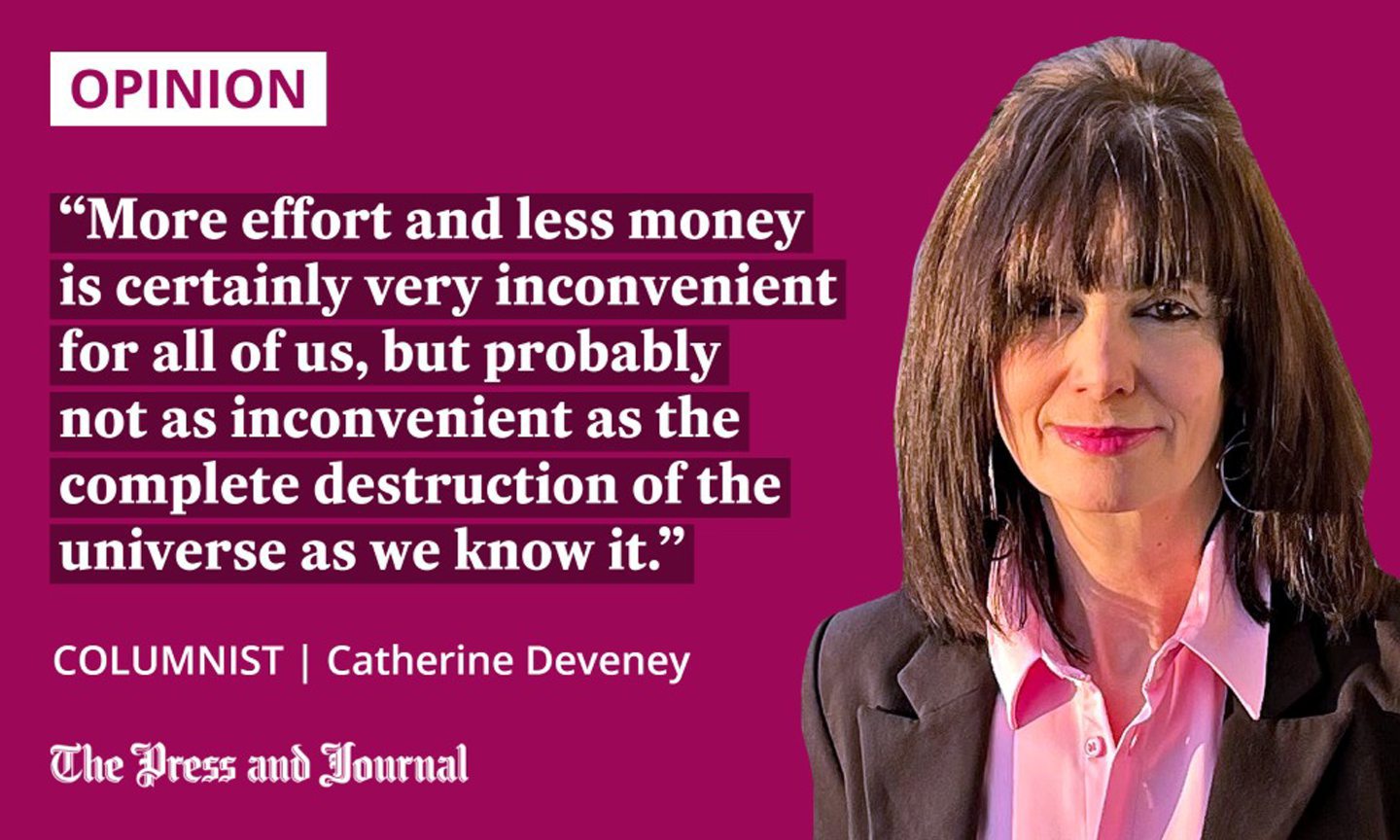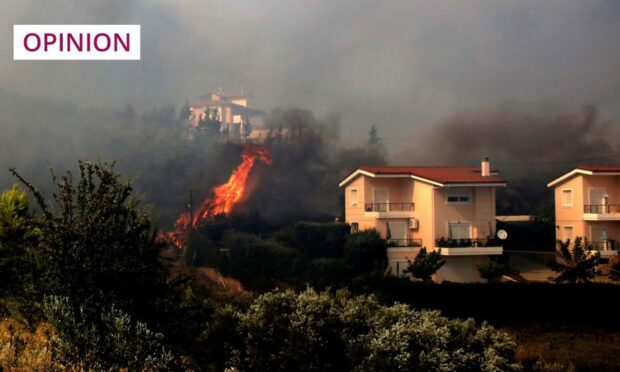As we speak, Housing Secretary Michael Gove should be somewhere on a Greek island, lapping up moussaka and retsina – assuming, of course, that he’s not choking on rancid smoke from local fires.
As Greece burned last week, producing apocalyptic images of blackened skies weeping soot and ash, and parents escaping along sun-baked, stony mountain paths carrying their distressed children, Gove was reassuring us that all was well and, tally-ho campers, he was off on his holibobs to Greece shortly.
Net zero really shouldn’t become a “religious crusade”, Gove advised. Chill, people. It was the kind of surreal, reality-altering Tory politics that feels a lot like gaslighting: am I losing my sanity or is he?
This week, the reality-challenging moment is Rishi Sunak giving permission for further drilling in the North Sea. Gove’s assertion that climate targets should not “unnecessarily give people more hassle and more costs in their lives” is clearly Tory strategy, despite sounding like an election slogan for the Very, Very Dim Party.
More effort and less money is certainly very inconvenient for all of us, but probably not as inconvenient as the complete destruction of the universe as we know it.
As one English professor writing in a national newspaper noted last week, politicians talk as if the environment is a subset of the economy when, in fact, the economy is a subset of the environment. No world, no capitalism. Doh.

“Hassle”? That’s a traffic jam. Or a supermarket queue. And, one has to ask, hassle for whom? Rishi Sunak, who earlier this year took private jet trips worth £500,000 in less than a fortnight, or asthmatic children in mould infested high-rises? Michael Gove, or rural villagers in Pakistan who have literally seen their homes swept away by changing river levels?
The ever increasing numbers of non-smoking lung cancer sufferers, or the ridiculous Lord Frost (has anyone told him about deed poll?), who tried to argue that climate change might be A Good Thing in Britain, where more people die of cold than heat. Have we all got lost and stumbled onto the set of The Thick of It?
Pollution control is not an optional extra
If anyone was ever tempted to doubt that politicians are driven by self-interest, their Pollyanna inclinations must surely have been dented in recent weeks. Gobsmacked by their own recent retention of Boris Johnson’s old seat, Uxbridge and South Ruislip (are voters there all sadomasochists or just eternal optimists?), the Tories have decided their surprise victory lies in opposition to the Labour mayor of London’s plans to extend the Low Emission Zone.
So, obviously, that’s the end of all the green nonsense. Short-term votes for long-term catastrophe.
And what was Labour leader Sir Keir Starmer playing at by publicly asking Sadiq Khan to “think again” about his policy, as if pollution control is an optional extra? There may have been predictions last week that the Gulf Stream could collapse as early as 2025, but who wants to put “save the Gulf Stream” on their election manifesto? Any Tory votes in it? Nah. But no world, no election. See above.
The Tory Party has descended into the kind of inner turmoil on the environment that preceded the disaster that was Brexit. Former Tory environment minister Zac Goldsmith’s recent resignation letter made clear he was “horrified” by Sunak’s abandonment of commitments both “domestically and on the world stage.”
Criticising him for attending the party of a media baron over a vital climate summit in Paris, he urged Sunak to show environmental leadership. Excellent idea. Stopping private jet journeys for distances that are little more than a trip to the supermarket for the rest of us would be a start.
This isn’t about the next election but the one in 20 years’ time
Bravo Tory peer Lord Deben – John Selwyn Gummer in Thatcher’s government – who slapped down Suella Braverman and Grant Shapps for their “unacceptable” criticism of the Labour Party’s stance over limiting expansion in the North Sea. His intervention quite rightly insists the environment should not be a party political issue.
Braverman and Shapps – now there’s a dodgy sounding lawyers’ office if ever I heard one – like the rest of their party, clearly think environmental issues come second to short-term political expediency, and are prepared to trade the ozone layer for a few more votes in the shires.
Then there’s Jacob Rees-Smog, ex-business minister and president of the Save Our Toffs Society, telling us that high-cost green policies are not liked by voters, as if the survival of the planet comes down to a beauty pageant-style policy popularity vote.
Guess what, Jacob? Some things are difficult, but they’re still right. Because this isn’t about the next election but the one in 20 years’ time.
More crucially, climate control is not about politics or money or convenience, but about genuine human suffering and survival across the world. And whatever Gove et al say, there ain’t no chill pill that’s going to take care of that.
Catherine Deveney is an award-winning investigative journalist, novelist and television presenter


